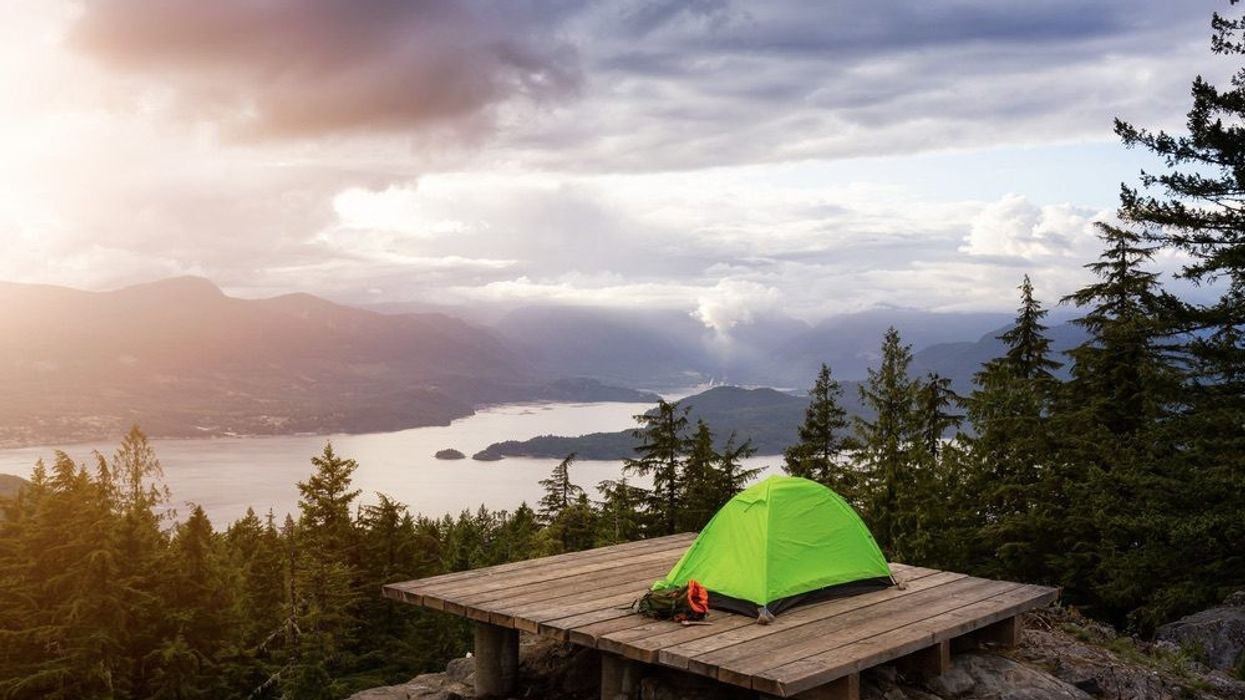Metro Vancouver is moving forward with plans to acquire 24 privately owned 10-acre lots on Bowen Island to convert into a regional park.
After a closed-door meeting held Friday, April 21, the regional district’s board of directors directed staff to proceed with the purchase of 97 hectares of land at Cape Roger Curtis, an environmentally sensitive dry coastal bluff area on the southern tip of Bowen Island.
The $40 million purchase is rumoured to complete on May 9, according to a long-time resident on the Island, Marian Bantjes, who is opposed to it.
As well, a Metro regional parks committee meeting was held earlier last week, in which committee members discussed public support for the project, which would include an estimated 100 campsites.
Bowen has never previously allowed overnight camping, and the move was a controversial one for the Island of 4,600 residents, whose concerns include lack of transportation and ferry infrastructure. A petition against a park with campsites had collected 1,464 signatures. However, Bowen Island’s six-member council and mayor expressed support for the purchase in a letter to Metro Vancouver. And a staff report to the park committee said after engaging with the public, nearly half of those who responded to a feedback form were in favour. However, most support came from outside Bowen.
Out of 1,029 people from Bowen Island, 198 said they were in support, 590 did not support, 89 were neutral and 152 said they didn’t have enough information. Of the 696 who said they lived in Metro Vancouver, 592 supported the project and 71 did not support, with 18 neutral and 15 who didn’t have enough information.
READ: BC Housing, Metro Vancouver Sign 10-Year Agreement to Build 2,000 Affordable Homes
At its Monday, April 24 meeting, Bowen Island council passed an amendment of its land use bylaw and changes to the Official Community Plan to allow overnight camping.
Candy Ho, who represents the owner-developers of the 97 hectares, couldn’t comment on the decision to move forward with the purchase until it completes. However, she had said earlier this month that their plan had always been to preserve the area for park land, even when they were selling off 59 10-acre lots, which had fit within the zoning for the area. Ho had sold 31 lots as single-family properties before entering into the deal to sell most of the remaining lots to Metro Vancouver last year.
Three other ecologically significant waterfront lots had sold to a conservancy group three years ago. Ho held onto one property for herself and her spiritual advisor to use as a retreat, and she has two more lots that she would consider selling if she can find buyers who are conservation-minded. Ho’s father Don Ho is one of the investors who’d originally purchased the 618-acre property nearly 20 years ago.
Over the years the investor group had proposed master-planned multi-family residential developments for the site, including a significant park, but island residents pushed back against the density. When Candy Ho officially took over as representative for the group, she chose to find a purchaser who’d conserve the area as park, which is when Metro entered the picture.
“From a business perspective, it’s a very low return because typically in a real estate development if you are talking condominiums, it’s a flip within a few years, and this is a very, very long, long land play,” she said. “And in any long-term real estate project they always factor in the internal rate of return, meaning the time value of money. So from that perspective it’s not great… but they are a group with long sustaining power.
“I have to honour the shareholders,” she added. “They are very untypical shareholders. They’re not looking for the maximum profit. Part of the profit is they feel good about what they are leaving behind. There is the financial return, and the spiritual return. I feel good in doing this. This is what I am leaving to my children.”
Bantjes cited limited ferry access to the island, lack of parking, and congestion issues, as reasons for opposing the park. She was also surprised that Metro would want to purchase lots that had been partially cleared and serviced by the owner.
“That’s the thing that doesn’t make sense to me, I would have thought Metro would have wanted a pristine piece of land, not 24 developed lots, each with cleared land for housing, and each with its own well, each supplied with hydro. I look at it and I think, ‘Why?’
“But the problem we have is that we are an island, and we have one route on and one route off on the ferry system, and the reason I’m opposed to this and others as well is that our ferry system is over loaded in the summer already to quite an extensive degree. There are a couple of sailings wait on either side at peak times, and the summer is crazy.
“A new park plus camping? One summer of that could shut down our commuters.”





















